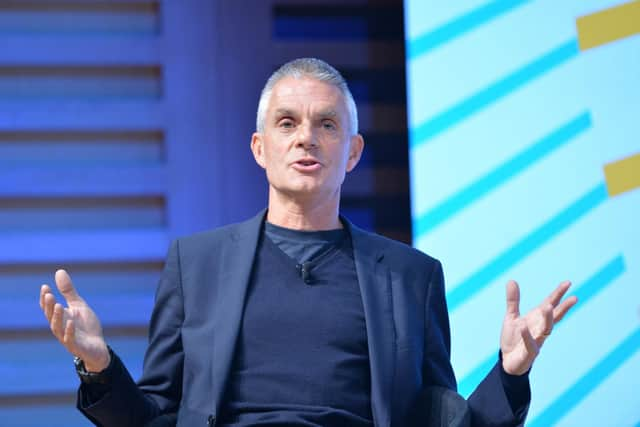BBC soul-searching required as viewers switch off ahead of licence fee battle: Jayne Dowle
The proportion of people who tune into TV regularly each week is down from 83 per cent in 2021 to 79 per cent in 2022, according to Ofcom.
Crucially, there is a “significant decline” in average daily broadcast TV viewing among “core” older audiences (aged 65 years old or above), with such viewers now more likely to get with the programme by switching to online streaming services alongside broadcast TV.
Advertisement
Hide AdAdvertisement
Hide AdOfcom says that 43 per cent of this older age group now use Netflix, 37 per cent have Amazon Prime, and interestingly, the proportion of over-64s enjoying Disney+ has increased from 7 per cent in early 2022 to 12 per cent in early 2023. What can be attracting these baby boomers to Disney+? The serial remake of Sheffield-set male stripper comedy The Full Monty? Or all those National Geographic documentaries?


Whatever it is, it should be worrying BBC execs. The biggest audience gatherers across all UK channels in 2022 were the England/France Fifa World Cup Quarter Final (16.1m viewers), and the Platinum Jubilee and state funeral of HM Queen Elizabeth II, part two both with 13.2m viewers, followed by I’m A Celebrity, Get Me Out of Here, watched by 12.5m people.
The forthcoming absence of ‘big ticket’ numbers for broadcasters points to a gaping hole in public engagement. Gone are the days when more than 30m UK viewers gathered round the set to catch the Christmas Day episode of BBC1 soap opera EastEnders – that was way back in 1986.
Times have changed, and are set to change even faster.
Although BBC One continues to have the highest weekly reach of all TV channels (58 per cent), focus is on the publicly-funded broadcaster because the current BBC Charter is up for renewal in December 2027, feasibly within the term of the new government following next year’s General Election.
Advertisement
Hide AdAdvertisement
Hide AdMoves are already under way. It was reported in July that a review of BBC funding is expected to examine “all options” for the future of the corporation. A partial subscription model, where some premium content is paid for while the bulk of the corporation's output remains free to air, is said to be a frontrunner.
Other options include a levy on broadband (not going to go down well with households already struggling to meet existing utility bills), a household tax (ditto) and a direct government grant.
Although there is a precedent with direct government funding – the Foreign and Commonwealth Office helps to fund the BBC World Service – a heavy Westminster hand would raise hackles over editorial independence.
There are also rumours that – hold onto your pearls Auntie Beeb – advertising might be allowed for the first time on the BBC. But experts say that this would be the most unstable and commercially volatile option, as TV ads ebb and flow with consumer trends. Also, ITV and Sky would have something to say about this kind of marketplace approach from a competitor broadcaster.Clearly, there is no easy answer to the conundrum. In the face of stratospherically rising household bills, the fee of £159 a year, or £13.25 every month, seems almost insignificant to many people, and there are exceptions – such as people over 75 in receipt of Pension Credit.
Advertisement
Hide AdAdvertisement
Hide AdHowever, for most of us, it is the principle of the thing. If you pay the licence fee dutifully and barely switch on the BBC, preferring other channels instead, why should you have to cough up, the argument goes?
The justification is that the licence fee pays for the BBC to deliver superlative news and current affairs coverage – its network of correspondents, at both local and international level, remains unsurpassed despite recent swingeing cuts – and to create outstanding drama and entertainment. However, as viewers have enjoyed access to wider choice, so they are asking questions about what the BBC actually offers, so hence feel resentful about paying the licence fee.
Other issues, such as the Dambusters row, and the recent scandal involving veteran newscaster Huw Edwards, not to mention the controversy over other highly-paid presenters such as Gary Lineker, raking in £1.35m a year at the top-earning spot, is hardly chiming well with a public burdened by a cost of living crisis and lack of trust in public institutions.
If viewers are switching off, and older, more loyal ones at that, big questions have to be asked at the Corporation too. At the simplest level, why is the BBC not giving people what they want to watch? And how much longer can it defend the licence fee, which everyone who owns a television set must pay for, if fewer and fewer people are choosing its programmes?